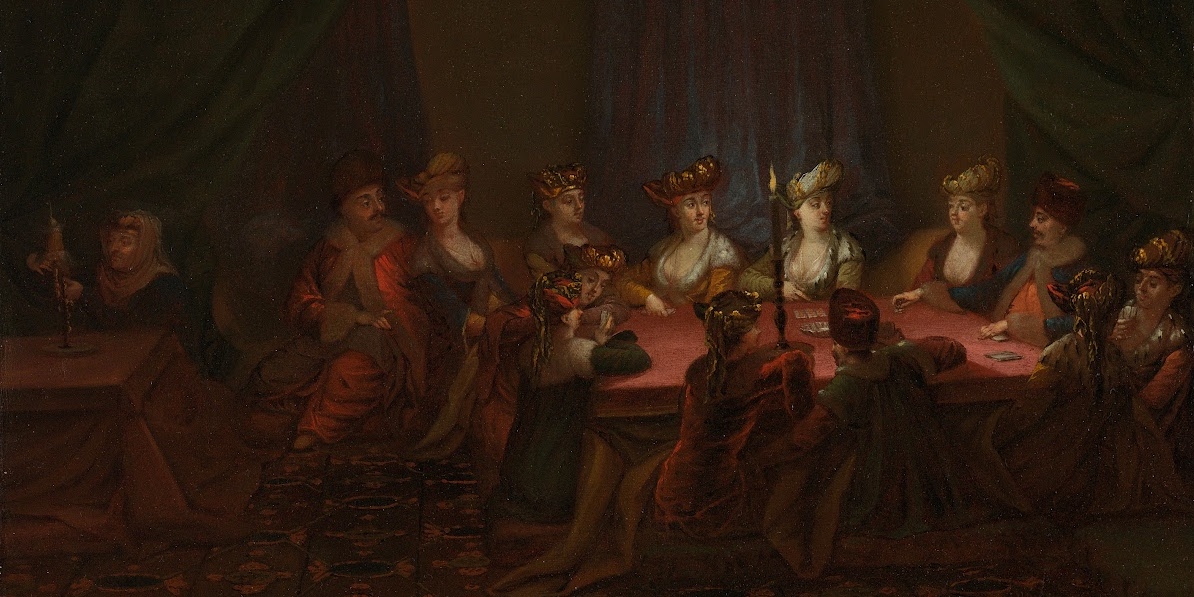Marginalized Women in Khedival Egypt
hosted by Chris Gratien and Susanna Ferguson
With political and economic developments in 19th century Egypt, the lives of women began to change in dramatic ways. From the rise of wage labor and the restructuring of rural households to the emergence of women's movements and publications, pre-colonial Egypt witnessed numerous transformation in the realm of gender. In this episode, Liat Kozma shares her research regarding some of the most marginalized women in Egyptian society during this period of change. Manumitted slaves, doctors and midwives, factory employees, and sex workers were some groups of women who left many historical traces in the police, court, and medical records of the Khedival government.
This episode is part of an ongoing series entitled "Women, Gender, and Sex in the Ottoman World."
PARTICIPANTS
 |
Liat Kozma is a senior lecturer at the Department of Islamic and Middle East Studies, the Hebrew University. She is currently working on a book manuscript on regulated prostitution in the interwar Middle East and North Africa.
|
 |
Chris Gratien holds a Ph.D. from Georgetown University's Department of History. His research focuses on the social and environmental history of the Ottoman Empire and the modern Middle East. He is currently preparing a monograph about the environmental history of the Cilicia region from the 1850s until the 1950s.
|
 |
Susanna Ferguson is a Ph.D. Candidate in Middle Eastern History at Columbia University. She is currently working on a dissertation entitled "Tracing Tarbiya: Women, Gender and Childrearing in Egypt and Lebanon, 1865-1939."
|
CREDITS
Episode No. 248
Release Date: 14 July 2016
Recording Location: Okmeydanı, Istanbul
Editing and production by Chris Gratien
Sound excerpts: Baglamamin Dugumu - Necmiye Ararat and Muzaffer; Istanbul'dan Ayva Gelir Nar Gelir - Azize Tozem and Sari Recep; Harmandali - Recep Efendi, Cemal Efendi
Image and bibliography courtesy of Liat Kozma
Additional thanks to Seçil Yılmaz
SELECT BIBLIOGRAPHY
courtesy of Liat Kozma
Judith Tucker, Women in Nineteenth Century Egypt. Cambridge: Cambridge University Press, 1985 – was groundbreaking at the time of its publication, and still unmatched in depth and scope.
On gender and slavery in nineteenth century Egypt, see Ehud Toledano, As if Silent and Absent: Bonds of Enslavement in the Islamic Middle East. New Haven, Con.: Yale University Press, 2007; Eve Troutt Powell, A Different Shade of Colonialism: Egypt, Great Britain and the Mastery of the Sudan. Berkeley: California University Press, 2003; and more recently her Tell This in My Memory: Stories of Enslavement from Egypt, Sudan and the Ottoman Empire. Stanford: Stanford University Press, 2012; as well as Terence Walz and Kenneth M.Cuno (eds.), Race and slavery in the Middle East: histories of trans-Saharan Africans in nineteenth-century Egypt, Sudan, and the Ottoman Mediterranean. Cairo: American University in Cairo Press, 2010.
Khaled Fahmy's works on nineteenth-century legal reform and its medical and forensic components are highly recommended:
“Prostitution in Nineteenth-Century Egypt,” in Outside In: On the Margins of the Modern Middle East, ed. Eugene Rogan. London: I.B. Tauris, 2002; “Medicine and Power: Towards a Social History of Medicine in Nineteenth-Century Egypt,” Cairo Papers in the Social Sciences, Volume 23, No. 2, Summer 2000, pp. 1-45; “The Anatomy of Justice: Forensic Medicine and Criminal Law in nineteenth-century Egypt,” Islamic Law and Society, 6 (1999), pp. 224-271. (An updated Arabic translation appeared in Justice Between Shari‘a and Reality in Egypt During the Ottoman Era, ed. Nasser Ibrahim and Emad Hilal, Cairo: Egyptian Historical Society, 2002, pp. 213-270; “Women, Medicine and Power in Nineteenth-Century Egypt,” in Remaking Women: Feminism and Modernity in the Middle East, ed. Lila Abu-Lughod. Princeton: Princeton University Press, 1998, pp. 35-72.
Another reading of virginity and defloration see Mario M. Ruiz, "Virginity violated: sexual assault and respectability in mid- to late-nineteenth-century Egypt", Comparative Studies of South Asia, Africa and the Middle East 25 (2005), 214 -226.










Comments
Post a Comment
Due to an overwhelming amount of spam, we no longer read comments submitted to the blog.